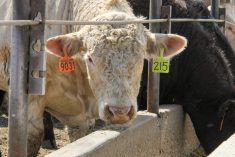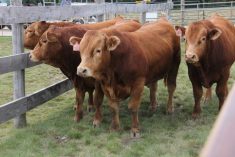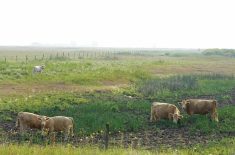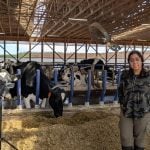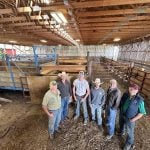A hog finisher operation and a sow operation in Manitoba’s southeastern “hog alley” have been confirmed with cases of porcine epidemic diarrhea (PED), both within close range of the province’s first case in over seven months.
According to Manitoba Pork, the province’s chief veterinary officer on Monday confirmed positive test results for PED at a sow operation, within five kilometres of a finisher operation confirmed with PED Saturday and a sow operation confirmed May 2.
The provincial ag department’s Emergency Operation Centre is “continuing to operate, assisting the affected producer and conducting a full disease investigation,” Manitoba Pork said.
Read Also
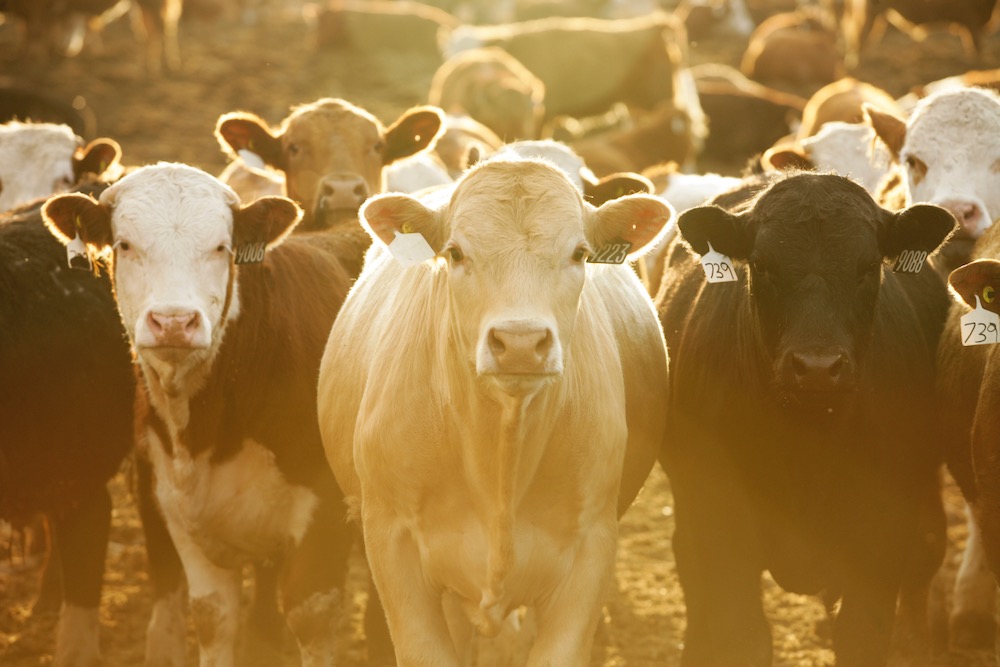
U.S. livestock: Cattle futures drop on Trump call for lower prices
Cattle futures on the Chicago Mercantile Exchange dropped sharply on Wednesday, reacting to comments from United States President Donald Trump…
Producers within a five-km radius of the infected site and contacts with the infected site have been alerted, and are monitoring their herds and collecting samples for testing, the pork agency said.
All veterinarians with clients within the five-km area have also been made aware of the site’s location.
All three affected producers during this outbreak made communication possible by signing a “sharing of information” waiver, the agency said, urging all hog producers to do so, and provide it to their herd veterinarian and Manitoba Pork.
Manitoba Pork has previously said the waiver allows both the hog agency and the CVO “to assist the producer in a more comprehensive and timely manner, while concurrently protecting the broader pork industry.”
Given that Monday’s case marks the third within a five-km area, Manitoba Pork said it would encourage other producers and service providers in that area to “ramp up” biosecurity measures.
Staff vehicles, for instance, should be parked at the end of the driveway and “dedicated footwear” or plastic booties should be worn in the barnyard.
Only “essential” service providers should be allowed to visit the site, and should also park at the end of the driveway and wear booties in the yard, Manitoba Pork said. Garbage and deadstock pickups should also be pushed to the end of the driveway, but away from where barn personnel and visitors will park.
Producers may also want to consider liming the driveways between the parking area and the barn, Manitoba Pork said, over “enough space to ensure all livestock and feed trucks entering the yard will get at least a full tire rotation’s worth of coverage.”
Service providers are urged to schedule visits within the affected area for the end of the week, if possible, or at least for last of the day, followed by a cleaning and disinfection procedure.
Manitoba Pork also recommended that service providers “minimize the amount of site contact to the essential service areas, only getting out of your vehicle when necessary.”
Manitoba’s three new on-farm cases of PED are Canada’s first since March, when southern Ontario — home to the bulk of Canada’s on-farm cases — saw its 101st at a Middlesex finisher operation, one of only two cases seen in that region since last June. — AGCanada.com Network



